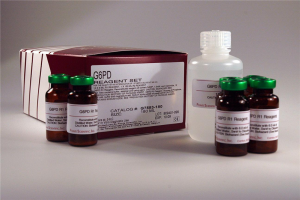 The G6PD enzyme deficiency, common among the Parsis, makes them highly susceptible to certain drugs. The deficiency may cause jaundice in the newborn and severe Homolytic crisis (destruction of red blood cells) in adults. Ask your family doctor to arrange for a blood test to detect whether you have G6PD enzyme deficiency. If you happen to be a G6PD patient, it is essential that you carry your card at all times so that in any emergency you would receive appropriate treatment.
The G6PD enzyme deficiency, common among the Parsis, makes them highly susceptible to certain drugs. The deficiency may cause jaundice in the newborn and severe Homolytic crisis (destruction of red blood cells) in adults. Ask your family doctor to arrange for a blood test to detect whether you have G6PD enzyme deficiency. If you happen to be a G6PD patient, it is essential that you carry your card at all times so that in any emergency you would receive appropriate treatment.
Analgesics: Anetanilid, Acetylsalicy acid, Aspirin, Acetophentidin (Phenacetin), Antipyring, Pyrimidine.
Sulfonamides and Sulfones: Sulfanilamide, Sulfapyridine, N2 Acetylsulfanilamide, Sulfacetamide, Sulfisoxazole (Gantrisin), Thiazolsulfone, Salicylazosulfapyride (Azulfadine), Sulfoxone, Sulfamethoxypyridine (Kynex).
Antimalarials: Primaquine, Pamaquine, Pentaquine, Quinacrine (Atabrine), Aminosalicy acid.
Miscellaneous: Naphthalene, Vitamin K (Water soluble analogues), Prodenecid, Trinitroluene, Methylene blue, Dimercaprol (BAL), Phenylhydrazine, Quinine and Quinidine, Sulpha containing, compunds including Septran, DDS and Daraprim; Nitrodurantion, Nalidixic acid including all derivatives of this group. Antistine, Diphenylhydramine, Pronestyle, Nitrites, Large dose of Chloroquine, Chloromycetin, Vit. C & K, Quinoline group of drugs, in particular ciprofloxacin.
